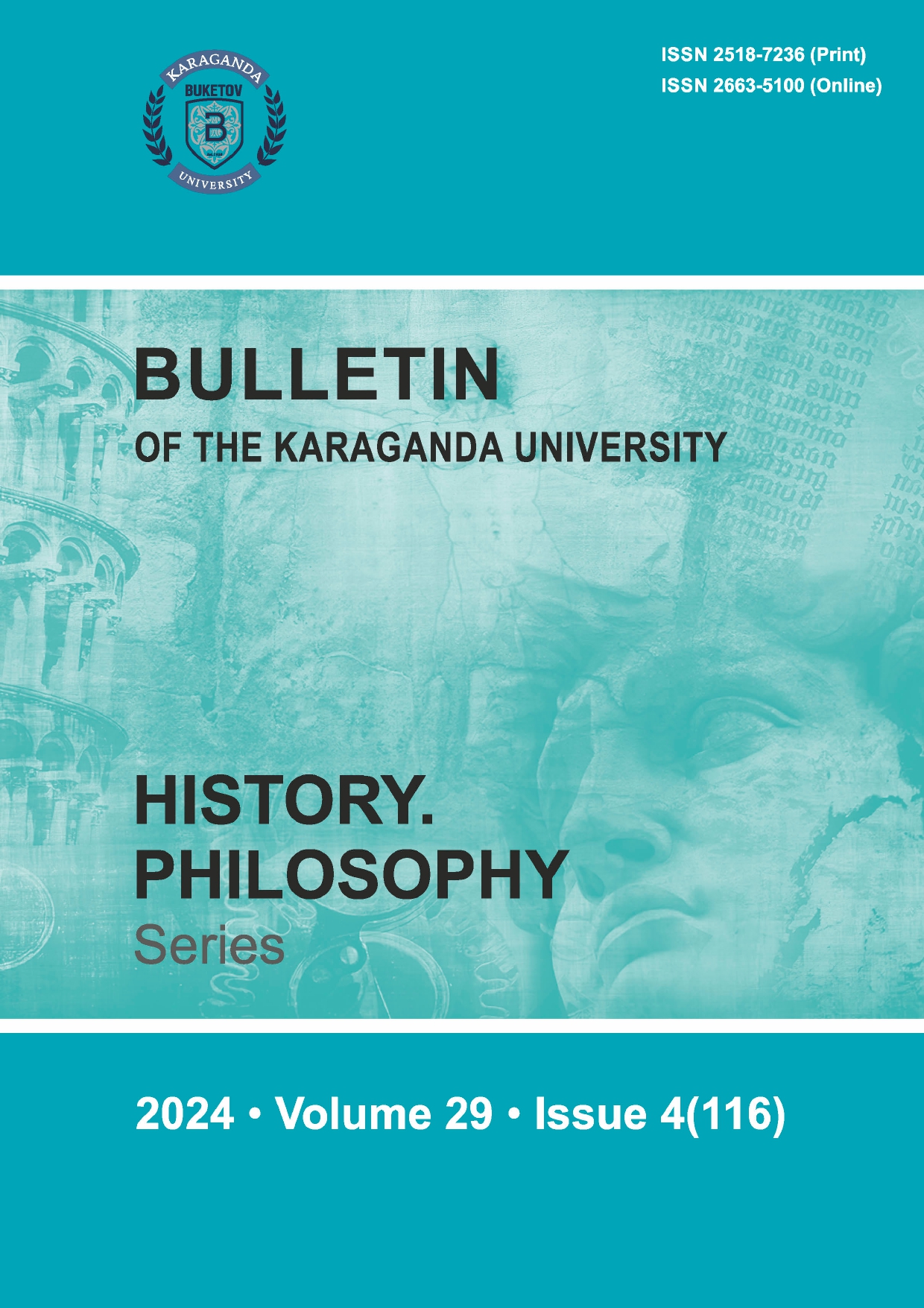Kantian correlationism and the problem of cognition of the absolute
DOI:
https://doi.org/10.31489/2024hph4/339-346Keywords:
thing-in-itself, correlationism, absolute, pre-historical, Copernican turn in philosophy, Ptolemaic counterrevolution, speculative realism, mathematical discourse, post-Kantian philosophy, ranscen- dental idealismAbstract
In the article the ideas of a new philosophical trend in Western philosophy — “speculative realism” were ex-amined, which arose as a reaction to the dominance of idealistic post-Kantian philosophy, calledcorrelationism and its varieties. The arguments and counterarguments of the ongoing criticism ofcorrelationism on the most important philosophical issue — the existence of things by themselves or “inthemselves” were analyzed. According to speculative realism, the vulnerable point of correlationism, reveal-ing its weakness, is the problem of “diachronism” or “the archiepiscopal”. Diachronism refers to the time gapbetween thinking and being, i.e. the recognition of the fact that being precedes thinking, it “exists” earlierthan thinking. Consistent correlationism cannot solve this problem. It is shown what influence the Galilean-Copernican revolution had on the formation of scientific and philosophical standards. Mathematical dis-course, according to the analyzed point of view, is a convincing proof of the possibility of thinking aboutthings by themselves or “in themselves”. The originality (novelty) of the article is expressed in the discoveryof the limitations of the position of speculative realism as a critique of correlationism: speculative realism,claiming to comprehend metaphysical problems, tries to solve metaphysical problems by means of science.The conclusion is made about the heuristic significance and limitations of the proposed direction.




